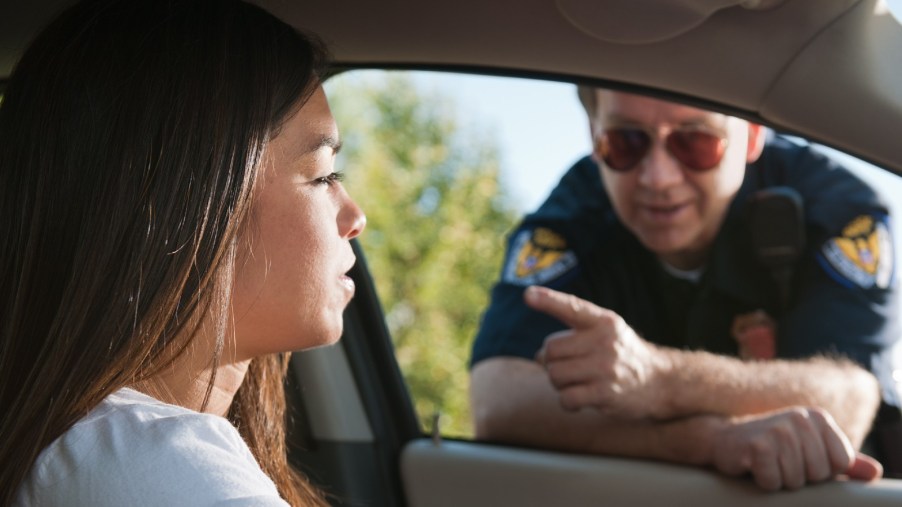
Can Passengers Walk Away During a Police Traffic Stop?
It’s a tempting thought: if you are a passenger in a car and the driver gets stuck in an especially long traffic stop, you can just walk away and make your own way home. There’s a persistent myth that you can waltz because a police officer doesn’t automatically “detain” a passenger when a driver is speeding. But the truth is much more complicated.
Attorney Anthony Bandiero offers legal courses for police officers. He covers laws and legal precedents set by the courts. Bandiero writes, “The US Supreme Court has stated in a few decisions that passengers are seized under the Fourth Amendment when they are in a vehicle during a traffic stop.”
This is very precise wording on the part of the US Supreme Court. A passenger is not automatically “detained” if, say, the driver is speeding. That’s because the responsibility for this crime is 100% the driver’s. But just like the vehicle and other evidence, all the passengers are “seized” for the police officer’s investigation into the speeding. So if the police officer used “reasonable force” to keep the passenger there, they would likely be protected in court.
How could this actually play out? Let’s say a police officer pulls over a car for speeding. When they look inside the vehicle they see open containers of alcohol or half-smoked marijuana. In addition to speeding, they are now investigating the use of alcohol or drugs in a vehicle on a public road. Because the passengers also had access to said alcohol or drugs, the officer will probably choose to detain them as a suspect in this new investigation. At this point, they can ask for the passengers’ ID and begin to question them as well.

Here’s where things get tricky: If the police officer is just investigating a traffic violation, they have no grounds to detain the passengers. As they investigate what was happening and where the driver is going, they may ask the passenger who they are. The passenger might choose to answer, and even to provide ID. In many cases, this might help support the driver’s story. But if the officer has no reason to detain the passenger, the passenger isn’t legally required to comply. But they are required to stay in the vehicle.
Just as the police officer can ask to see the passenger’s ID, the passenger could hypothetically ask to leave the vehicle. Let’s say, for example, the driver was speeding with a suspended license. The police officer might arrest them on the spot. This could leave the passenger stranded. In this case, the passenger could ask “Am I free to go.” Or the police officer might even volunteer, “You are free to go.” In this case, obviously, the passenger is no longer “seized” as part of the investigation. But it’s very important that the passenger confirm this with the police officer.
The only exception would be in states with local laws that specify police must have a reason to detain a passenger in a traffic stop. Next, read whether its illegal for police to set speed traps, or hear Attorney Anthony Bandiero’s full explanation of this law in the video below:



